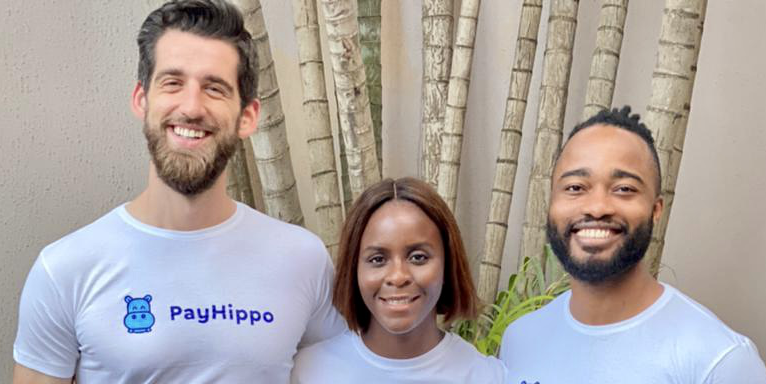Despite its significance, the small business sector in Africa remains largely underserved by commercial banks.
In Nigeria, a large percentage of the population operates small to medium-sized enterprises (SMEs) in what is referred to as the “informal economy”. The informal economy accounts for a massive two-thirds of the entire economy and creates far more employment opportunities than the formal sector. Still, most small business owners in the country find it difficult to access formal financial products or services. The same can be said for Africa in general.
Most of these businesses are creditworthy, but traditional banks don’t lend to them because credit scores don’t exist and collateral requirements are too high. The bulk of SME transactions is predominantly cash-based, making it difficult to establish a credit footprint, coupled with a poor culture of financial record-keeping by business owners.
The inability to secure lending hinders the growth potential of SMEs and solving this credit gap has become a market opportunity that many social entrepreneurs in Africa are seizing. For instance, the market size for SME lending in Nigeria is estimated at $46 billion, and Payhippo’s founders have a personal connection to this market opportunity.
“I helped run my family’s business in Nigeria and I know how tough financing can be for SMEs in Nigeria,” said Chioma Okotcha, PayHippo co-founder. “That’s why I went to work in microfinance policy. But I saw that there was still such a big need for SMEs in Nigeria and the continent.”

Payhippo is an artificial intelligence-driven lending platform that provides loans to small businesses in under 3 hours and helps them spend lender capital effectively. It has three co-founders, all of who have founding experience and lending domain expertise to best service SMEs in Africa. Chioma serves as COO, Uche Nnadi as CTO, and Zach Bijesse, who worked at Lidya, as chief executive officer.
SMEs sign up to the platform after which the company evaluates the cash flow and business owner data to determine what loan size is right for them. SME clients can also build a Payhippo score to access up to 3x the amount of financing over time.
One thing that makes PayHippo stand out is the unique customer experience the startup offers to SMEs seeking financing, Chioma explained to TechCabal in an interview. PayHippo’s automated products allow the startup to co-create with its customers and get to know them on a deeper level, to tailor products to their needs better.
The strategy is apparently paying off. PayHippo has seen the level of financing distributed to SMEs soar in the short time since its launch in January 2020. It has disbursed ₦1.44 billion in over 2,600 loans to businesses, most of which are community grocery stores or small retail shops that are part of the critical infrastructure of their communities but left outside of the traditional financial system.
Giving founders exactly what they need has also helped the startup achieve a steady return every month. PayHippo has recorded a 97% repayment rate since it began operations in Nigeria and has grown revenue 25% month-on-month. This is an indication of good growth for the businesses PayHippo is helping. “There are endless issues that Nigerian SMEs experience with financing but we’ve been taking it one step at a time,” Nnadi said.
The startup has now raised $1 million in pre-seed funding. The round was composed of African tech investors such as Ventures Platform, Future Africa, Launch Africa, and Sherpa Ventures with participation from international investors, Hustle Fund and Mercy Corps Ventures.
Before the raise, PayHippo had friends and family backing from notable Nigerian angel investors and from early-stage venture builder, Aidi Ventures. With the new cash injection, the startup plans to hire more engineers and a Head of Finance to keep up with the current growth and keep providing seamless financing to small businesses on the continent.
“Small businesses are at the core of Africa’s economic growth and we are thrilled to partner with Zach, Chioma & Uche as they build PayHippo. They are essentially bridging the $158 billion SME financing gap,” said Kola Aina, General Partner at Ventures Platform Fund.
Getting into Y Combinator
PayHippo was accepted to the Y Combinator Summer 2021 accelerator cohort. According to Chioma, the startup was selected due to the resilience it has shown even in the face of tough challenges brought on by the Covid-19 pandemic.
“Y Combinator chooses companies that do everything in their power to succeed. The Payhippo team has had tenacity throughout Covid and other crises affecting Nigeria. This is clear with our performance metrics: Payhippo has been growing 25% each month with a 97% repayment rate since January 2020,” she told TechCabal.
PayHippo plans to leverage the boost to a startup’s reputation that comes with being in the YC programme to build a team that would help the company scale.
“We have a lot of work to do and so we need help from great talents,” the COO said. “YC has a competitive acceptance rate and other brand signals that are attractive to the world’s job market. This has already started paying off – talented people have already been contacting us with interest in working at Payhippo.”
Did you enjoy reading this article? Please fill out this survey. We need your feedback to help us introduce content you will find useful.





















